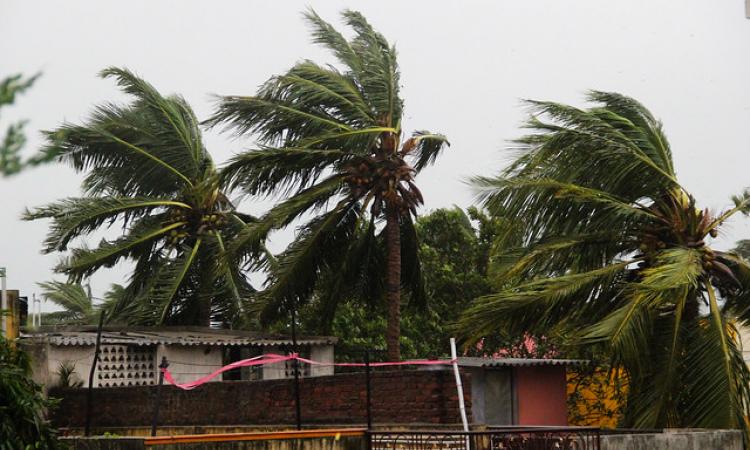
Cyclone Bulbul causes devastation in West Bengal and Odisha
Hitting the coast of India and Bangladesh on November 9th, the deadly Cyclone Bulbul has claimed twenty lives, displaced two million people and destroyed houses in West Bengal and Bangladesh. The storm brought torrential rains and strong winds of up to 120 kilometres per hour. Initial estimates suggests that losses in West Bengal could reach Rs 19,000. Odisha too faced the brunt of Cyclone Bulbul - nearly 3 lakh hectares of crop area in the coastal areas of the state were affected. Taking note of the situation, the Odisha CM announced a 'special package' for affected farmers. (Skymet Weather, Firstpost, The Times of India)
Thousands of migratory birds found dead at Sambhar lake, Rajasthan
In a second such incident in Rajasthan in a week, around 1500 migratory birds of about ten species were found dead around Sambhar Lake, India's largest inland saltwater lake near Jaipur. The first incident took place in Jodhpur's Khinchan area where 37 demoiselle cranes were found dead. The authorities are yet to ascertain the reason behind the mass death, however, they suspect either pesticide-laden seeds in a particular field or water contamination as the cause of death. Although the official toll was 1500, locals claim the number could be as high as 5,000. Some of the species of birds included plovers, the common coot, the black-winged stilt, northern shovelers, ruddy shelduck and the pied avocet. (India Today)
Tamil Nadu farmers convert borewells into rainwater harvesting structures
The recent news of a toddler falling into an abandoned borewell in Tiruchirapalli and dying, has been a wake up call to the state of Tamil Nadu to do something about abandoned borewells. The Tamil Nadu Water Supply and Drainage Board (TWAD) passed orders to convert abandoned dry open wells and borewells into rainwater harvesting structures across the state immediately to avoid such incidents in the future, and the Kadaimadai Area Integrated Farmer’s Association (KAIFA), an association of farmers in Thanjavur and Pudukottai districts, has started repurposing the abandoned wells for groundwater recharge. (Economic Times, VillageSquare)
Maharashtra's climate action plan is out
Eight years after a Central directive to formulate a state action plan on climate change, Maharashtra has finally adopted one prepared by The Energy and Resources Institute (TERI). The action plan assesses the state's vulnerability to climate change, and outlines broad and ambitious strategies to build a climate resilient future for Maharashtra. However, meteorologists and environmental experts aren't satisfied with the action plan, saying that the state government has missed out on issues related to thunderstorms, lightning and air pollution even after taking so long to come up with this action plan. (The Wire)
Musi river pollution now extends beyond Hyderabad
As per a new study by researchers from Osmania University, the Musi river is polluted up to 70 kilometres from Hyderabad’s periphery. This revelation disproves the popular belief that only the stretch of the river within Hyderabad was contaminated. The once pristine Musi River now receives large quantities of industrial effluents and domestic sewage, making it extremely toxic. Moreover, the contaminants from the river have percolated into the ground in several places, making even the groundwater unsuitable for domestic, drinking and irrigation purposes. (The Times of India)
This is a roundup of important news published between November 5 - 12, 2019. Also read policy matters this week.
/articles/cyclone-bulbul-devastates-west-bengal-and-odisha